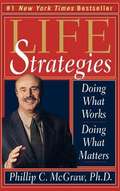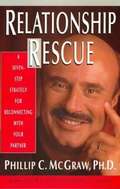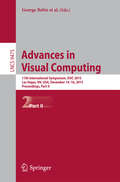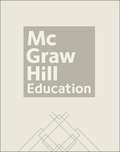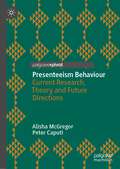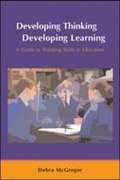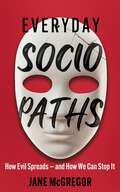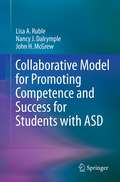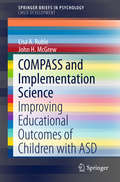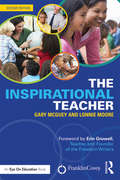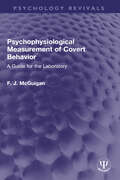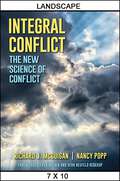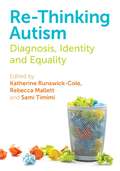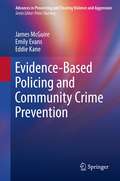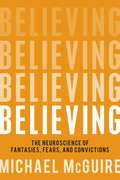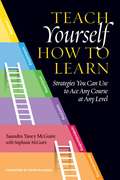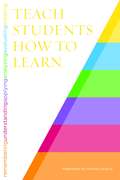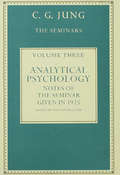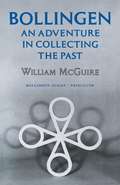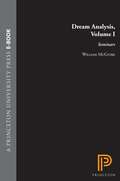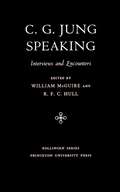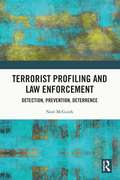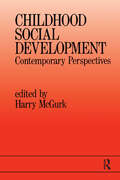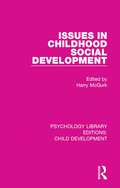- Table View
- List View
Life Strategies: Doing What Works, Doing What Matters
by Phillip C. McgrawWhether its a bad relationship, a dead-end career, or a harmful habit, Dr. McGraw's 10 Life Laws will empower you to take responsibility for your own actions and break free from self-destructive patterns.<P> Drawing upon more than fifteen years of experience, Dr. McGraw explores each of the 10 Life Laws necessary to succeed, including:<P> * People do what works<P> * Life rewards action<P> * Life is managed, not cured<P> * There is freedom in forgiveness<P> Filled with case studies, checklists, and strategies that will work for you, Life Strategies will provide you with the skills you need.
Relationship Rescue (A Seven-Step Strategy for Reconnecting with Your Partner)
by Phillip C. McgrawWith Life Strategies, Phil McGraw helped hundreds of thousands of people take responsibility for their own actions and break free from self-destructive habits and situations. Now he turns his honest, unflinching eye toward relationships--diagnosing them, repairing them, and maintaining them. This hands-on book is for people who realize their relationship is in trouble, but who don't want to give up on it. In addition, it includes questionnaires, profiles, and checklists that will keep readers focused and aware of their feelings. Phil McGraw has already established himself as someone whom readers can turn to for direct, tell-it-like-it-is help in their own lives. Now he offers readers the chance for further happiness through meaningful, fulfilling relationships that work. Dr. McGraw helps get relationships back on track with a controversial explosion of the myths of conventional relationship thinking and clear action-oriented steps for reconnecting partners.
Advances in Visual Computing: 11th International Symposium, ISVC 2015, Las Vegas, NV, USA, December 14-16, 2015, Proceedings, Part II (Lecture Notes in Computer Science #9475)
by Tim Mcgraw George Bebis Richard Boyle Bahram Parvin Darko Koracin Ioannis Pavlidis Rogerio Feris Mark Elendt Regis Kopper Eric Ragan Zhao Ye Gunther WeberThe two volume set LNCS 9474 and LNCS 9475 constitutesthe refereed proceedings of the 11th International Symposium on VisualComputing, ISVC 2015, held in Las Vegas, NV, USA in December 2015. The 115 revised full papers and 35 poster paperspresented in this book were carefully reviewed and selected from 260submissions. The papers are organized in topical sections: Part I (LNCS 9474)comprises computational bioimaging; computer graphics; motion and tracking;segmentation; recognition; visualization; mapping; modeling and surfacereconstruction; advancing autonomy for aerial robotics; medical imaging;virtual reality; observing humans; spectral imaging and processing; intelligenttransportation systems; visual perception and robotic systems. Part II (LNCS9475): applications; 3D computer vision; computer graphics; segmentation;biometrics; pattern recognition; recognition; and virtual reality.
Presenteeism Behaviour: Current Research, Theory and Future Directions
by Alisha McGregor Peter CaputiThis book presents a concise and contemporary account of theory and research on presenteeism. It thoroughly discusses the definition and measurement of presenteeism, followed by an overview of the presenteeism literature focusing on key areas such as the prevalence, causes, consequences, costs and benefits of presenteeism. It reviews the models of presenteeism, and how they have been used to explain presenteeism behavior in the workplace. The authors offer an overview of presenteeism interventions and suggestions for future interventions, as well as recommendations for future research studies on presenteeism.
Developing Thinking; Developing Learning: A Guide to Thinking Skills in Education
by Debra McgregorThis is an indispensable guide to thinking skills in schools today, and is key reading for education studies students, teachers and trainee teachers, and educational psychologists.
Everyday Sociopaths: How Evil Spreads and How We Can Stop It
by Jane McGregor'Offers answers, healing and game-changing new insights' Jackson MacKenzieIf you're in a relationship where you're always in the wrong, and constantly being criticised, the chances are you're with a sociopath - someone without a conscience, whose personality shows extreme antisocial tendencies.Now substantially updated with shocking new statistics and compelling case studies, this book is designed to help you identify the sociopath destroying your happiness, and it gives you the tools you need to protect yourself against these arch-manipulators. It will help you to see their behaviour for what it really is, understand the way they interact with others, and extract yourself from a destructive relationship - whatever its nature. You will regain control of your life for good, and become a survivor; a stronger person.More than just a practical guide, Everyday Sociopaths sends out a call to all of us, not only to identify and call out the sociopaths in our midst, but also to contribute to a culture where empathy exists as a prized virtue with the potential to transform society at every level.
Everyday Sociopaths: How Evil Spreads and How We Can Stop It
by Jane McGregor'Offers answers, healing and game-changing new insights' Jackson MacKenzieIf you're in a relationship where you're always in the wrong, and constantly being criticised, the chances are you're with a sociopath - someone without a conscience, whose personality shows extreme antisocial tendencies.Now substantially updated with shocking new statistics and compelling case studies, this book is designed to help you identify the sociopath destroying your happiness, and it gives you the tools you need to protect yourself against these arch-manipulators. It will help you to see their behaviour for what it really is, understand the way they interact with others, and extract yourself from a destructive relationship - whatever its nature. You will regain control of your life for good, and become a survivor; a stronger person.More than just a practical guide, Everyday Sociopaths sends out a call to all of us, not only to identify and call out the sociopaths in our midst, but also to contribute to a culture where empathy exists as a prized virtue with the potential to transform society at every level.
Collaborative Model for Promoting Competence and Success for Students with ASD
by John H. Mcgrew Nancy J. Dalrymple Lisa A. RubleRising numbers of young children diagnosed with autism spectrum disorders means more students with ASD entering pre-school and the elementary grades. For these young learners, individualized instruction toward measurable goals is crucial to effective education. The COMPASS program--Collaborative Model for Promoting Competence and Success for Students with Autism Spectrum Disorders--has been developed to improve outcomes for these students in the unique context of their lives. Collaborative Model for Promoting Competence and Success for Students with ASD builds consulting and ASD knowledge competencies while working with families and teachers in a systematic, empirically supported consultation program. The book offers a framework for individualized assessment and program planning based in students' life experiences along with family and teacher input. At the same time, its two-tiered consultation/coaching strategy is designed to minimize the setbacks that occur even in optimal family and classroom situations. Protocols, scripts, forms, and case examples are included for a complete guide to facilitating successful learning. Featured in the text: Theory and rationale behind COMPASS.Self-evaluation tools for assessing core skills and competencies.Guidelines for writing effective Individual Education Programs and the COMPASS Action Plan.Detailed instructions for implementing Action Plans and monitoring progress.Case studies of the COMPASS program in real-life situations. A complete kit of forms, scales, and checklists. Practitioners working with children with ASD, particularly in child and school psychology, special education, rehabilitation, social work, speech pathology, and developmental psychology, will find in Collaborative Model for Promoting Competence and Success for Students with ASD a consultation model that empowers teachers, families, and above all, students.
COMPASS and Implementation Science: Improving Educational Outcomes of Children with ASD (SpringerBriefs in Psychology)
by John H. Mcgrew Lisa A. RubleThis Brief examines COMPASS - the Collaborative Model for Promoting Competence and Success - a consultation-based intervention specialized for children with Autism Spectrum Disorder (ASD). Based on the Evidence-Based Practices in Psychology (EBPP) framework, the volume describes the processes that strengthen the expert support relationships between consultant and teacher (i. e. , implementation) and between teacher and student (i. e. , intervention). In addition, the Brief addresses how consultation methods work within COMPASS, with teachers learning from consultants' implementation methods to tailor instructions that are specific to students' educational and personal factors. This unique framework corresponds with current, widespread research and aims to provide more effective educational services for students with ASD during their crucial formative years. Topics featured in this text include: COMPASS practice outcome based on idiographic assessment and measures of quality. Evidence for the efficacy of COMPASS. COMPASS implementation quality. COMPASS intervention quality and active ingredients. Teacher and student internal and external factors impacting COMPASS. COMPASS and Implementation Science is a must-have resource for clinicians, scientist-practitioners, researchers, and graduate students in the fields of child and school psychology, behavioral therapy, and social work as well as rehabilitation, special education, and speech pathology.
The Inspirational Teacher
by Gary McGuey Lonnie MooreBecome a teacher who truly inspires students to learn and grow! This bestselling book—from Routledge and Franklin Covey, the company that brought you The 7 Habits of Highly Effective People—is filled with practical and heartfelt advice that will resonate with teachers at all stages of their careers. The book will guide you through a simple four step process to building high-trust relationships and unleashing the greatness within all students. This timely new edition includes updated references and inspirational quotes throughout, as well as chapter reflection questions to help you make the most of what you read. In addition, several of the questionnaires and reflection tools from the book are also available on our website as free eResources, so that you can easily print and use them in your own classroom. http://www.routledge.com/books/details/9781138906242.
Psychophysiological Measurement of Covert Behavior: A Guide for the Laboratory (Psychology Revivals)
by F. J. McGuiganBy the 1970s psychology had made sizable advances with its primary emphasis on the study of overt behavior, but its progress on covert behavior had been delayed because of the lack of suitable psychophysiological technology. Originally published in 1979, this title was written to help laboratory researchers in their efforts to develop a mature science of covert behavior. Early efforts to record small-scale behavior with flattened wine glasses about the tongue were heroic, but understandably progress did not begin until the advent of very sensitive electronic equipment. In 1979 we were now technologically capable of: (1) sensing; (2) amplifying; (3) recording; and (4) quantifying small-scale behavior with at least the effectiveness with which we have studied large-scale responses. It was hoped that this book would facilitate the empirical efforts of future psychophysiologists and professional researchers in each of these four phases of the laboratory system. More generally it was hoped that it would serve as an important component in our efforts to understand behavior. Today it can be read in its historical context.
Integral Conflict: The New Science of Conflict (SUNY series in Integral Theory)
by Richard J. McGuigan Nancy PoppThis book explores conflict through the discerning lens of Integral Theory, applying Ken Wilber's AQAL model to a real-life case study, the River Conflict. Coauthor Richard J. McGuigan was a mediator in this ongoing dispute over fishing rights on the Fraser River in British Columbia, a situation where commercial, recreational, and First Nations fishing interests clashed. Voices of the various stakeholders are featured prominently, giving a vivid sense of a seemingly intractable situation. McGuigan and Nancy Popp set the stage for their Integral analysis of the River Conflict, then move expertly through four chapters aimed at understanding the conflict from the four dimensions of human experience: individual, collective, interior, and exterior. The result is a powerful picture of just how "integral" conflict is. This quadrant-by-quadrant analysis is well-punctuated by sidebar observations, insights, and tips for conflict practitioners or students, giving readers new to Integral Theory additional support in understanding and applying the AQAL model to their work.
Re-Thinking Autism: Diagnosis, Identity and Equality
by Anne Mcguire Tom Billington Katherine Runswick-Cole Saqib Latif Richard Hassall Mark Haydon Laurelut Kim Davies Rafaela Zorzanelli Nick Hodge Francisco Ortega Gail Simon Sami Timimi Tom Muskett Ginny Russell Dan Goodley Clarice Rios Brian Mccabe Rebecca Mallett Graham CollinsChallenging existing approaches to autism that limit, and sometimes damage, the individuals who attract and receive the label, this book questions the lazy prejudices and assumptions that can surround autism as a diagnosis in the 21st Century. Arguing that autism can only be understood through examining 'it' as a socially or culturally produced phenomenon, the authors offer a critique of the medical model that has produced a perpetually marginalising approach to autism, and explain the contradictions and difficulties inherent in existing attitudes. They examine and dispute the scientific validity of diagnosis and 'treatment', asking whether autism actually exists at the biological level, and question the value of diagnosis in the lives of those labelled with autism. The book recognises that there are no easy answers but encourages engagement with these essential questions, and looks towards service provision and practice that moves beyond a reliance on all-encompassing labels. This unique contribution to the growing field of critical autism studies brings together authors from clinical psychiatry, clinical and community psychology, social sciences, disability studies, education and cultural studies, as well as those with personal experiences of autism. It is essential and challenging reading for anyone with a personal, professional or academic interest in 'autism'.
Evidence-Based Policing and Community Crime Prevention (Advances in Preventing and Treating Violence and Aggression)
by James McGuire Emily Evans Eddie KaneThis book addresses and reviews progress in a major innovative development within police work known as evidence-based policing. It involves a significant extension and strengthening of links between research and practice and is directed to the task of increasing police effectiveness in the field of community crime prevention. This volume provides an international perspective that synthesizes recent research results from the United States and other countries – including systematic reviews of large bodies of evidence – to illuminate several of the most challenging issues currently confronting police departments. It examines recent advances in research-based models of policing and the expanding base in outcome evaluation.Key areas of coverage include:Managing the nighttime economy.Supervising sex offenders.Tackling domestic/intimate partner violence.Addressing school violence and the formation of gangs.Reducing victim and witness retraction and disengagement.Responding to mental disorders, safeguarding vulnerable adults, and providing victim support.Leveraging public awareness campaigns.In addition, each chapter presents an overview of key issues within a designated area, synthesizes existing reviews, and examines the most recent research. The book clearly and concisely presents major concepts, theories, and research findings, thereby providing both conceptual and analytic tools alongside an integrated presentation of principal findings and messages. The volume concludes with a discussion of current directions in research, key developments in policing strategies, and identification of effective operational structures for facilitating and sustaining research-practice links.Evidence-Based Policing and Community Crime Prevention is a must-have resource for researchers, clinicians and other professionals, and graduate students in forensic psychology, criminology and criminal justice, public health, developmental psychology, psychotherapy and counseling, psychiatry, social work, educational policy and politics, health psychology, nursing, and behavioral therapy/rehabilitation.
Believing
by Michael McguireA new book about brain chemistry, neural systems, and the formation of beliefs from the scientist who brought to light serotonin's many crucial roles in human behavior. Beliefs: What are they? How have evolution and culture led to a brain that is seemingly committed to near endless belief creation? And once established, why are most beliefs so difficult to change? Believing offers answers to these questions from the perspective of a leading neuroscientist and expert in brain-behavior research. Combining personal anecdotes and the latest research, Dr. McGuire takes the novel approach of focusing on the central and critical role of brain systems and the ways in which they interact with the environment to create and maintain beliefs. This approach yields some surprising and counterintuitive conclusions: * The brain is designed for belief creation and acceptance. * It is biased in favor of its own beliefs and is highly insensitive to disconfirming evidence. * It prefers beliefs that are pleasurable and rewarding to those that are unfavorable. * Beliefs are "afterthoughts" of unperceived brain activities; they don't cause behavior. * Our consciousness has minimal influence on the neural systems that create beliefs. Based on these observations, McGuire concludes that for the foreseeable future people will continue to hold a multitude of beliefs, many of them intransigent.
Teach Yourself How to Learn: Strategies You Can Use to Ace Any Course at Any Level
by Saundra Yancy McGuire Mark McDaniel Stephanie McGuire<p>Following up on her acclaimed Teach Students How to Learn, that describes teaching strategies to facilitate dramatic improvements in student learning and success, Saundra McGuire here presents these "secrets" direct to students. <p>Her message is that "Any student can use simple, straightforward strategies to start making A's in their courses and enjoy a lifetime of deep, effective learning." <p>Beginning with explaining how expectations about learning, and the study efforts required, differ between college and secondary school, the author introduces her readers, through the concept of metacognition, to the importance and powerful consequences of understanding themselves as learners. This framework and the recommended strategies that support it are useful for anyone moving on to a more advanced stage of education, so this book also has an intended audience of students preparing to go to high school, graduate school, or professional school. <p>In a conversational tone, and liberally illustrated by anecdotes of past students, the author combines introducing readers to concepts like Bloom's Taxonomy (to illuminate the difference between studying and learning), fixed and growth mindsets, as well as to what brain science has to tell us about rest, nutrition and exercise, together with such highly specific learning strategies as how to read a textbook, manage their time and take tests. <p>With engaging exercises and thought-provoking reflections, this book is an ideal motivational and practical text for study skills and first year experience courses.</p>
Teach Students How to Learn: Strategies You Can Incorporate Into Any Course to Improve Student Metacognition, Study Skills, and Motivation
by Saundra Yancy McGuire Stephanie McGuireThe learning strategies and the psychological insights about learning presented in this book will be useful for teachers of students of all ages, including parents of young children.
Analytical Psychology: Notes of the Seminar given in 1925 by C.G. Jung (Bollingen Ser. #No. Xcix: 3)
by William McGUIREBased on the Tavistock Lectures of 1930, one of Jung's most accessible introductions to his work.
Bollingen: An Adventure in Collecting the Past - Updated Edition (Bollingen Series (General) #654)
by William McGuireThis lively, intimate, sometimes disrespectful, but always knowledgeable history of the Bollingen Foundation confirms its pervasive influence on American intellectual life. Conceived by Paul and Mary Mellon as a means of publishing in English the collected works of C. G. Jung, the Foundation broadened to encompass scholarship and publication in a remarkable number of fields. Here are wonderful portraits of the central figures, including the Mellons, Jung himself, Heinrich Zimmer, Joseph Campbell, D. T. Suzuki, Natacha Rambova, Vladimir Nabokov, Gershom Scholem, Herbert Read, and Kurt and Helen Wolff.
Dream Analysis, Volume I: Seminars (Jung Seminars #1)
by William McGuireWhile the basis of these seminars is a series of 30 dreams of a male patient of Jung's, the commentary ranges associatively over a broad expanse of Jung's learning and experience. A special value of the seminar is the close view it gives of Jung's method of dream analysis through amplification. The editorial aim has been to preserve the integrity of Jung's text.
C.G. Jung Speaking: Interviews and Encounters (Bollingen Series #650)
by William McGuire R.F.C. HullA collection of journalistic interviews which span Jung's lifetime. This book captures his personality and spirit in more than 50 accounts of talks and meetings with him. They range from transcripts of interviews for radio, television, and film to memoirs written by notable personalities.
Terrorist Profiling and Law Enforcement: Detection, Prevention, Deterrence
by Noel McGuirkThis book analyses the usefulness of terrorist profiling utilised by law enforcement officers as a pre-emptive means to assist them in the detection, prevention and deterrence of terrorism and/or its preparatory activities. It explores two main themes arising from the phenomenon of terrorist profiling: the lawfulness of terrorist profiling and the utility of profiling. These two themes are explored in three separate parts. Firstly, the book begins by drawing upon human rights concerns arising from the use of terrorist profiling by law enforcement officers. Secondly, an analytical framework capable of making determinations on the usefulness of terrorist profiling. This framework develops a profiling spectrum that ranges from formal and informal manifestations of terrorist profiling that forms the basis for evaluating its usefulness. Finally, the book presents an examination of various manifestations of terrorist profiling by separating the analysis of the ‘construction’ of profiles on the one hand, from their ‘application,’ on the other, so as to be able to identify and examine profiling’s usefulness as a technique to assist law enforcement officers make predictions about likely offender characteristics. This book ultimately concludes that terrorist profiling should only be conducted by undertaking a systematic assessment of the construction of profiles separate from the application of profiles whilst simultaneously taking into account fundamental human rights concerns with the practice of terrorist profiling. The work will be an essential resource for academics, law enforcement officers and lawyers in the disciplines of law, criminology, human rights, criminal justice and policing. As the book engages with terrorist profiling, it will also be of interest to those engaged in the psychology of terrorism.
Childhood Social Development: Contemporary Perspectives
by Harry McGurkThis book provides an account of research in action and debate in progress in a selection of areas of childhood social development where significant progress is underway. The chapters are written by an eminent group of British and American developmental psychologists each of whom has made primary contributions to research in the areas covered in the volume. The contributors were invited to reflect upon the current scene in social developmental research and to develop their own distinctive viewpoint and contribution to the field. The book addresses issues in social development from infancy to adolescence. The topics examined include: interactions between biological and social factors in social development; sex role development; the development of friendships; the role of peer interaction in social and cognitive development; and the influence of cultural artifacts in the social and cognitive development of children. Although each chapter is concerned with a different aspect of social development, there are a number of themes that recur throughout the volume. One concerns the nature of social development: the acquisition of social understanding and the development of social skills are not individual achievements of children reared in isolation. Rather, they are the outcome of social processes in which the developing child engages, sometimes in an unequal partnership with experienced adults; at other times in more equal partnership with peers and playmates. In both cases the development change is a constructive outcome. A second recurrent theme is a concern for developmental researchers to take fuller account than they may traditionally have done of the nature of the cultural settings in which social development occurs. Different cultures have different customs and artifacts, and these can constrain development in different ways. This issue is considered throughout the book and is the specific focus of the final chapter.
Issues in Childhood Social Development (Psychology Library Editions: Child Development #5)
by Harry McgurkOriginally published in 1978, contemporary theory and research into childhood social development had demonstrated the necessity to re-appraise the notion that socialization is merely a process of shaping the behaviour of the child to fit the mores of society. It was now evident that, from the beginnings of post-partum life, the human infant is an active participant in social encounters, modifying the behaviour of others as well as being influenced by them. Hence, social development must be construed as an interactive process, to which the young organism makes his own dynamic contribution. This book, comprising a collection of original essays by prominent investigators in the field, considers issues arising from this modified perspective. It examines the biological basis of social development, the role of child-caretaker interaction, the significance of sex differences, the influence of peer relations and the perceptual-cognitive factors which contribute to childhood social development and to the developing child’s understanding of society.
